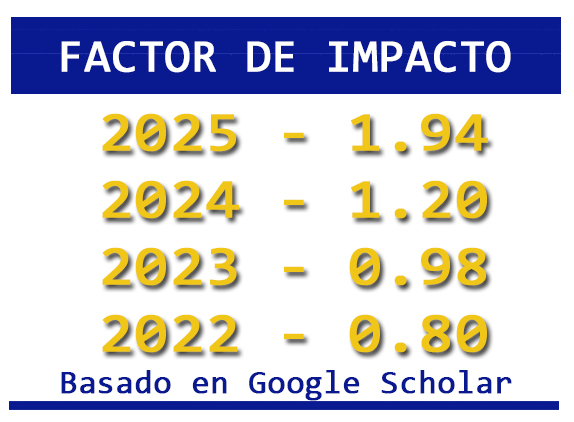Ethics of scientific publication
a) Publishing Committee
In the first instance all collaborations will be evaluated by the publishing committee, the evaluation will address the following issues:
- That the contributions conform to the topics in which the journal specializes, that represent relevant contributions to scientific and technological knowledge, and they meet the norms and guidelines for the submission of original ones.
- Manuscripts submitted for publication shall be considered solely on the basis of the academic and scientific merits of each text.
- All texts must follow the rules for the delivery of originals established by the journal.
- The revisions of the manuscripts are made through the Associate Editors and the Editor-in-Chief, relying on a portfolio of referees that is fed back every day. Arbitrations are made ad-honorem by peers of renowned prestige.
- The responsibility to accept or reject a text rests with the Associate Editor who will consult it with the Publishing Committee and will be based for the decision on the corresponding anonymous opinions.
- In case the opinions do not coincide, the Publishing Committee will send the text to a third opinion.
- The Publishing Committee will maintain the double-blind principle in the decision process at all times and will not be able to disclose the names of the dictators under any circumstances to avoid any type of interest conflict.
- If there is an interest conflict because the authors are members of the journal's publishing committee, the proposed text will be evaluated by experts outside the journal and the institution to which the authors belong.
- The responsibility for accepting or rejecting a collaboration shall be the responsibility of the Executive Editor and shall be based solely on the result of the evaluations carried out by each of the bodies responsible for it.
- The journal editor and the Editorial Committee reserve the right to disallow published works that contain manifest and proven lack of reliability derived from scientific malpractice, such as, among others, the omission of bibliographic or documentary references, and reproduction without citing the authorship of research by other authors.
b) Duties of reviewers
- Reviewers will evaluate the work objectively and confidentially. Reviewers should be aware that their task is a fundamental part of a process that guarantees the quality of the publication.
- Reviewers who notice the existence of an interest conflict with the evaluated authors must quit the evaluation and communicate, as soon as possible, this situation to the journal’s director.
- The reviewer who considers that he is not qualified to judge a work must return the text, to the director of the journal, within a period of no more than ten days.
- The reviewers shall undertake to carry out the evaluation within a period not exceeding fifteen days.
- The reviewers must reason their evaluation based on their knowledge of the subject matter.
- Reviewers should not use unpublished information, arguments or interpretations contained in a manuscript they dictate without the author’s consent.
- Reviewers should clearly explain their evaluation, so that the publishing committee and the author understand the analytical basis of their comments.
c) Duties of the Authors
- Authors must follow the “Rules for the submission of originals” established by the journal.
- According to the “Rules for the submission of originals”, authors may only submit original and unpublished research; no published research will be accepted. They must ensure that the documentary evidence and the results presented in their articles are the product of an original work. It is an obligation to identify all published and unpublished works of other authors that were used and that served as background to the article being evaluated. (Attaching originality letter).
- Authors must not submit the same article simultaneously for publication in other journals.
- The authors shall include in the citations and references, and in the bibliography, the sources used for their research.
- The authors must cite the authorship and origin of all the images included in their texts (tables, graphs, maps, photographs, etc.). If necessary, the authors will be responsible for managing the reproduction permissions.
- Authors must clearly present the results of their research and their relevance.
- The texts of the authors will not be submitted to evaluation until all the requirements established in the “Rules for the submission of originals” established by the journal are met.
- If the evaluations condition the publication of the collaborations to the realization of adjustments and corrections, the authors must make these corrections within a period not exceeding fifteen days. When the authors submit the corrected version, they will attach a letter detailing the changes introduced in the new versions, along with their figures in higher quality and original graphics in editable format.
- The authors, once they have received the notification that their texts will be published, they must attend to the layout tests and grant the journal the format of "copyright".
- Under no circumstances may the authors be modified once the work is submitted to the Epistemus Journal.














